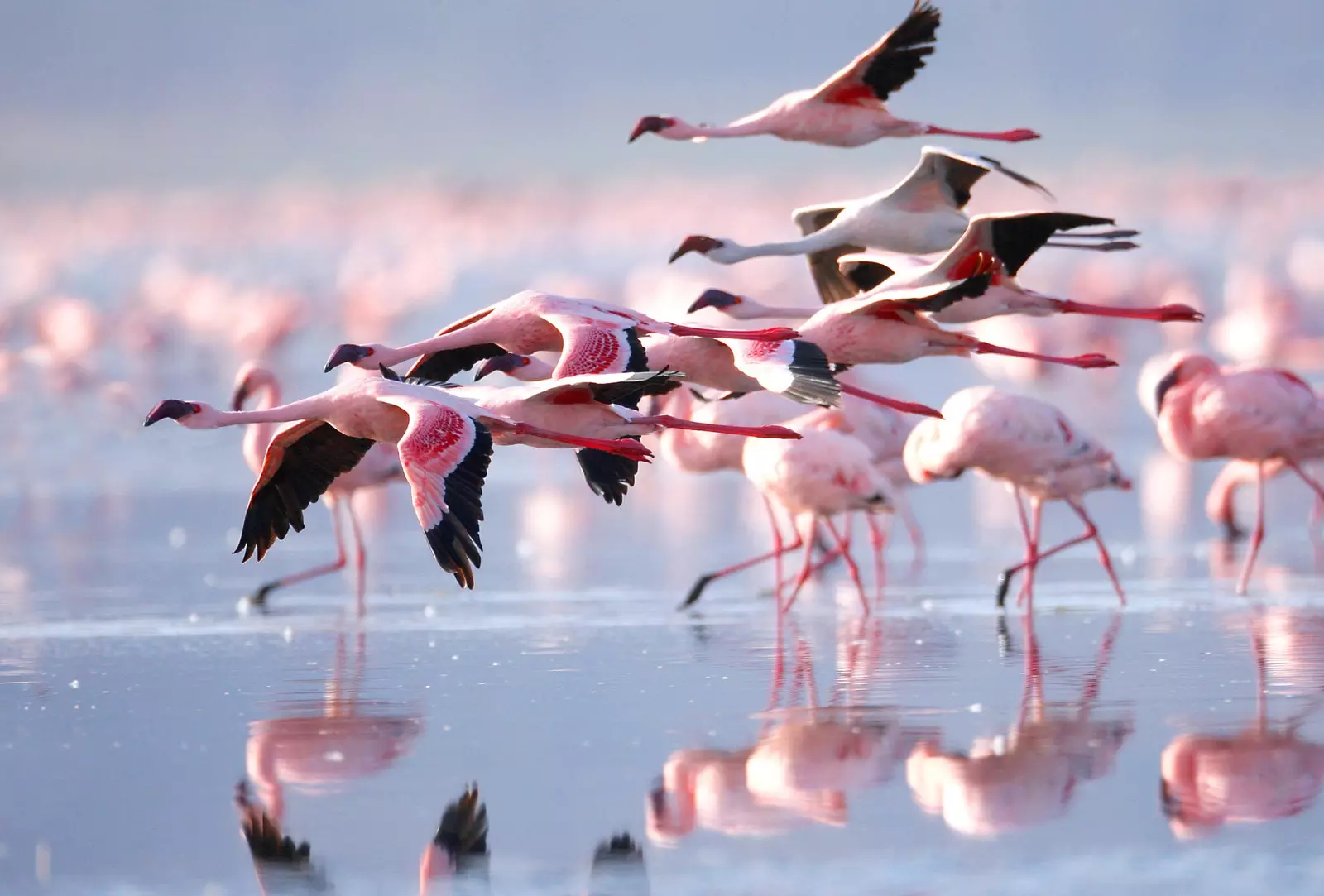
The Ebro Delta registers the largest number of calves in its history.
The flamingo is a very unique species and very sensitive to climate change . The Ebro Delta is the only wetland in Catalonia and one of the few in the Mediterranean where the species reproduces regularly, so much so that it happens every year.
Around 4,303 pairs of flamingos have reproduced since May here, specifically in the Punta de Banya Natural Park. **A historical number since its creation in 1992. **
The count, which was carried out twice in July by the RPAS Unit of the Forest Agents Corps,** registered up to 3,260 chicks that are already flying or will fly across the Mediterranean**, from Turkey to Portugal, and from France to Algeria, as explained to Traveler.es in the Protection and Research Area of the Ebro Delta Natural Park.
The number of chicks that get ahead is never 100%, however this 2020, the number has been the absolute maximum of the entire historical series. Since 2006, an upward trend began in the area, which is located in the municipality of Sant Carles de la Ràpita, with a historical maximum of 3,139 couples in 2009.
It was in 2013 when matings stopped growing, and for four consecutive years the figures were reversed, that is, below 1,000 pairs of flamingos per year. This was due to problems with seagulls and foxes, the most dangerous predators for the species. **More comprehensive protection in recent years has turned the tide again. **
The reasons for this historical figure are several, and although it may seem that the confinement has had something to do with it,** the experts say the opposite**. "The confinement and deconfinement have not had any influence, since the area where they reproduce is a reserve and public access is very restricted (only personnel associated with the salt flats and scientific personnel)", Antoni Curco explains to Traveler.es , member of the Protection and Research Area of the Ebro Delta Natural Park.
For the breeding of the flamingo to be successful, the place must be calm and protected , and that the colony can settle and there is no danger from other land predators such as foxes or badgers. In addition, they have to have food, the area for this has to have little vegetation and high salinity, for example, salt pans or endorheic lagoons.
“There are several factors that influence the reproduction of flamenco. On the one hand, there are local factors in the Delta (meteorology, ensuring protection against human disturbances and land predators, sufficient food...). There are also external factors, since the flamingos of the western Mediterranean form a single population and can reproduce anywhere in this area , so that all the positive and negative ecological factors that occur in this region can influence the development of the breeding colony in the Ebro Delta”, adds Antoni.
In this sense, the ringing of the species, which is usually done every year in the month of July and which involves some 250 people in the park, it has not been carried out due to the health crisis . This activity is essential to study the species and is carried out jointly with the Mediterranean & West African Greater Flamingo Network , an entity that involves seven countries of the Mediterranean basin, from Mauritania to Turkey.
Until 2020, some 4,370 flamingo specimens have been ringed, which allows them to be observed in 14 countries such as France, Spain or Italy. This year the photographs and observations have had to be made from the air, but even so they have resulted in one of the best data in its history.
